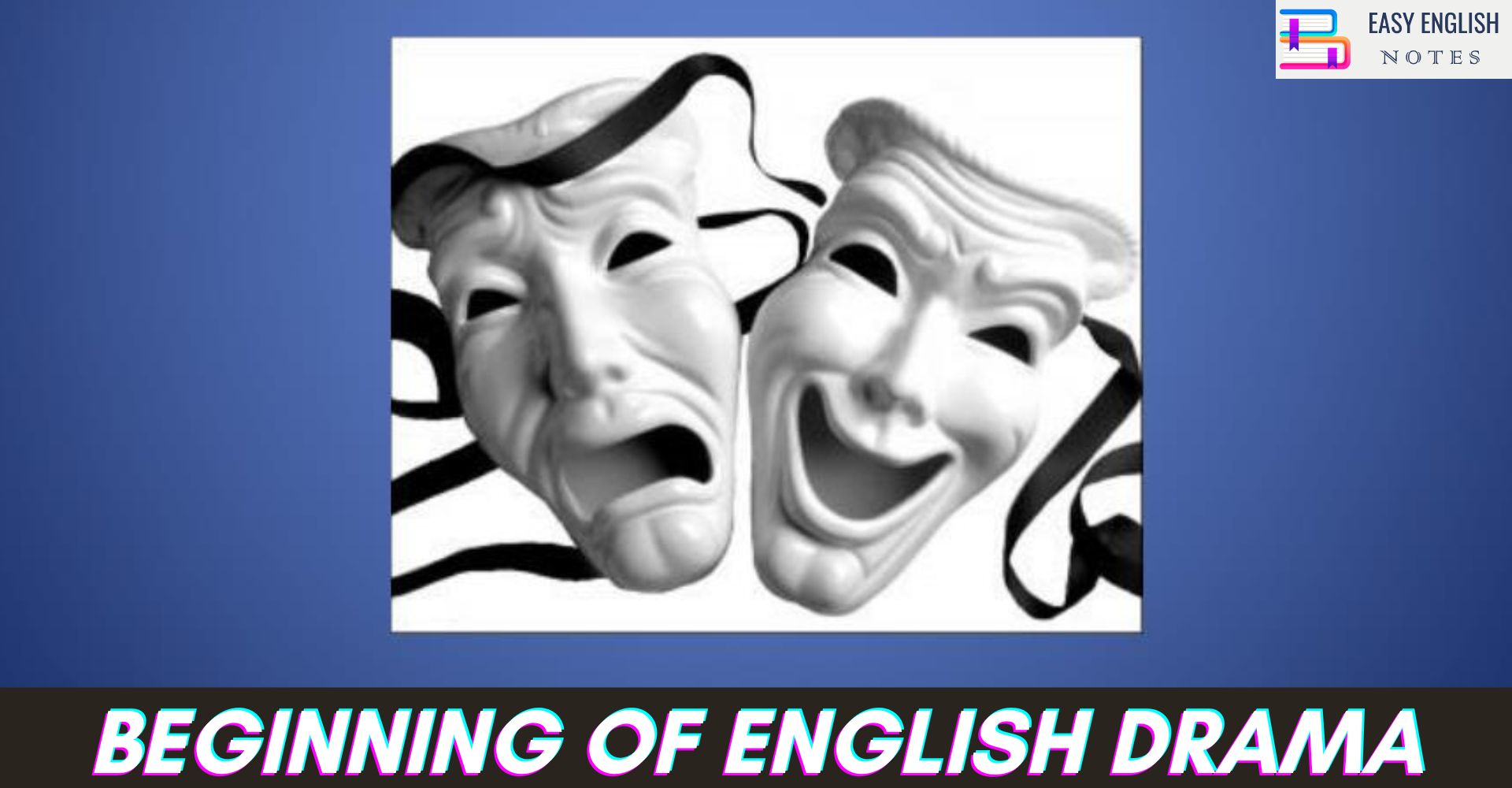Drama is the most natural of all arts. It is based on one of the most fundamental of the human and natural faculties-the faculty of imitation. It is through imitation that human children learn to talk and to perform a large number of actions. This imitative faculty makes us all actors from childhood. In the primitive age, people used to gather on the occasion of Easter, Good Friday and Christmas in the Church premises. On Christmas, the story of Christ’s birth and circumstances of that birth was staged. Thus, the history of English drama can be traced as a regular succession from miracle play to morality, from morality play to interlude and from interlude to a regular comedy and tragedy.
The Miracle plays came down to us anonymously. They were the units of the larger whole to which they belong. The authors were mostly the clergymen of the local religious institutions. The themes and characters were mostly theological. The four cycles of these miracle plays were connected with the town of York, Chester, Wakefield and Coventry. Among these, the York cycle was the least literary and aesthetic. In the miracle plays, the lives of saints were dramatised. These plays also dealt with the miracles of Christ and his followers.
The Mystery plays were the second variety of the early drama. These plays dealt with the mysterious or wonderful achievements of the trade-guilds or craft guilds. This type of presentation of plays on the feast of Corpus Christi became one of the most important of their social activities. Mystery plays dealt with the fall of Lucifer, the creation of the world and the day of judgement. Gradually, we have the gradual drawing away of the drama from a purely religious content. In the Wakefield, Second Shepherds’ play, “the biblical element occupies little place. The play is purely a secular story about Mac the sheep thief. He steals a new-born lamb, and so, he is punished. The episode that leads to the uncovering of the lamb and of Mac’s villainy is really very amusing. Thus, in such types of Mystery plays dramatic, action, strong characterisation and humour are artistically blended.
In Morality plays, virtues and vices were presented on the stage. Allegorically. Abstraction such as justice, Mercy, Gluttony and Vice were among the commonest characters. The characters of Morality plays were all personified abstractions. In these morality plays there was an advance in Plot-construction. The plot of such plays was based on the clash of characters particularly between vice and virtue. “Everyman” is a fine example of this type of drama. This play is a dramatization of the idea that death appears to everybody. At the same time, it also informs that every man should commence his journey to the next world since his birth. Everyman calls on certain friends to accompany him. But they are not ready to go with him. Only knowledge and good deeds are ready to travel in his company to the grave. Everyman learns that pleasures, friends and families of this world avail a man nothing when death comes, “The World And the Child”, “Hickscorner” and “Youth” are later morality plays.
Also Read :
- Compare Hamlet with Macbeth, Othello and other Tragedies
- “The Pardoner’s Tale” is the finest tale of Chaucer
- Prologue to Canterbury Tales – (Short Ques & Ans)
- Confessional Poetry – Definition & meaning
The last predecessor of the English drama was the interlude. It developed about the middle of the sixteenth century. It had certain prominent characteristics. It was a short play that introduced real characters such as citizens and friars. In these plays, allegorical figures are conscious of their absence. John Heywood was the originator of this type of drama. His interludes are simple. They are characterised by the atmosphere of joviality and fun. “The Four PS” is one of his best interludes. Medwall’s “Fulgens And Lucrece” is a remarkable play in the tradition. It is a sort of dramatised discussion on the nature of true nobility.
The first regular drama In the form of comedy was Ralph Roister Doister. It was written by Nicholas Udall, the Headmaster of Eton. The influence of Italian comedy writer Terence is evident from this play. The play has a sound plot. The hero is a swaggering boastful man. “Gammer Gorton’s Needle” is another early noteworthy comedy. It is based upon the loss of a needle and on the intrigues and jealousies following upon it.
“Gorboduc” was the first English tragedy. It was written by Norton and Thomas Sackville. There is an uninterrupted seriousness in the play. Gloom envelops the entire play. There is little action on the stage. “Appius and Virginia” and “Historic of Horestes” were tragedies of anonymous authorship. Most of these plays are modelled on the style of the Senecan tragedy.
PLEASE HELP ME TO REACH 1000 SUBSCRIBER ON MY COOKING YT CHANNEL (CLICK HERE)











